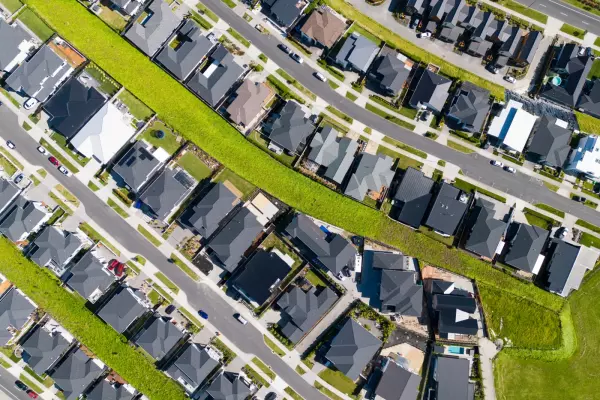Kiwibank wants to lead the banking charge when it comes to making New Zealand’s financial world more sustainable.
The bank is planning to make its books greener and deliver $2 billion in sustainable finance by 2030.
“The actions we’ve taken across key areas of focus including financial education and sustainable finance have made for a very busy year,” chief executive Steve Jurkovich said in the bank's 2022 sustainability report released today.
“But that’s all part of strengthening our commitment to be the bank that balances performance and purpose.”
Kiwibank reduced its total operations emissions by 22%, alongside a reduction in its electricity use by another 22% and a cutback in travel of 35%.
The bank achieved most of its sustainability goals for 2022, ranging from more equitable gender representation across leadership roles and achieving a 15% reduction in its total operational emissions, which included specific targets for electricity, travel and its fleet.
Kiwibank said it enabled a total of 55,401 school children to have access to financial education this year, thanks to its partnership with financial education platform Banqer. The bank said it wants to increase that number to 60,000 tamariki in 2023.
More than $6.7m was prevented from being spent on gambling, thanks to 452 Kiwibank customers using the bank’s voluntary gambling block.
The creation of its sustainable finance team this year saw the bank deliver $100m in sustainable finance, with the plan to deliver $2 billion in sustainable finance to help improve NZ businesses by 2030.
“It’s important to keep lifting our game and to do that we have to understand all the ways we can reduce our carbon footprint,” Jurkovich said. The bank’s goal is to reduce carbon emissions by 40% in 2025.
In August, Kiwibank started offering preferential interest rates on sustainable loans for eligible business banking customers – regardless of their industry.
The bank partnered with the sustainable software company Cogo to help qualifying business customers calculate their emissions footprint.
But it managed to convert only 7% of its vehicle fleet to electric after its original 15% goal was hit by supply-chain constraints.
Kiwibank only partially achieved its goals for Māori, which included creating new ways to increase Māori access to capital for its personal and business customers.
The bank had only completed a review and a plan to address the key barriers identified at the time of the sustainability report being published.
And only 8% of staff completed the provided te reo Māori and tikanga training, which was less than a third of the bank’s goal of 25%.
The bank also did an analysis to understand the climate impact of its business-banking portfolio – but failed to set a measure for the carbon intensity from its portfolio.
Kiwibank lifted its annual net profit by 4% to a record back in August, which was driven by higher revenue and a continued focus on costs. Net profit for the year ended June rose to $131m, from $126m the previous year.















